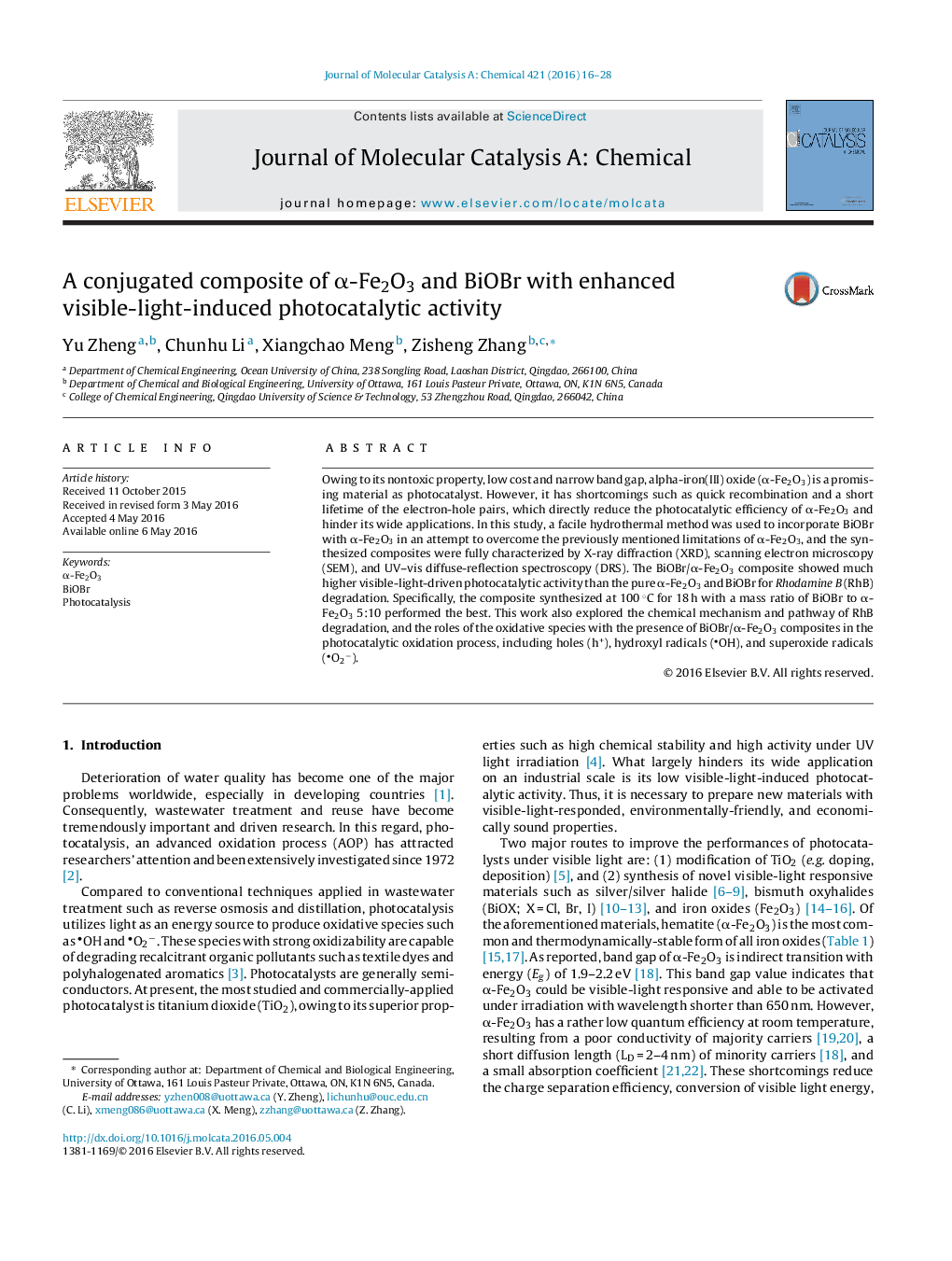| کد مقاله | کد نشریه | سال انتشار | مقاله انگلیسی | نسخه تمام متن |
|---|---|---|---|---|
| 64609 | 48363 | 2016 | 13 صفحه PDF | دانلود رایگان |

• New materials with BiOBr/α-Fe2O3 heterojunction were successfully prepared.
• They were found to enhance the photocatalytic activity in photocatalytic Rhodamine B degradation.
• The degradation mechanism was examined via oxidative species quenching.
Owing to its nontoxic property, low cost and narrow band gap, alpha-iron(III) oxide (α-Fe2O3) is a promising material as photocatalyst. However, it has shortcomings such as quick recombination and a short lifetime of the electron-hole pairs, which directly reduce the photocatalytic efficiency of α-Fe2O3 and hinder its wide applications. In this study, a facile hydrothermal method was used to incorporate BiOBr with α-Fe2O3 in an attempt to overcome the previously mentioned limitations of α-Fe2O3, and the synthesized composites were fully characterized by X-ray diffraction (XRD), scanning electron microscopy (SEM), and UV–vis diffuse-reflection spectroscopy (DRS). The BiOBr/α-Fe2O3 composite showed much higher visible-light-driven photocatalytic activity than the pure α-Fe2O3 and BiOBr for Rhodamine B (RhB) degradation. Specifically, the composite synthesized at 100 °C for 18 h with a mass ratio of BiOBr to α-Fe2O3 5:10 performed the best. This work also explored the chemical mechanism and pathway of RhB degradation, and the roles of the oxidative species with the presence of BiOBr/α-Fe2O3 composites in the photocatalytic oxidation process, including holes (h+), hydroxyl radicals (OH), and superoxide radicals (O2−).
BiOBr-(α)Fe2O3 heterostructures were successfully synthesized by facile hydrothermal method and the material showed excellent activity in photocatalytic degradation of an organic dye Rhodamine B.Figure optionsDownload high-quality image (126 K)Download as PowerPoint slide
Journal: Journal of Molecular Catalysis A: Chemical - Volume 421, September 2016, Pages 16–28